When you look at the price of some natural and organic products, it may seem that reducing your environmental footprint is an expensive act. However, it doesn’t have to be. In fact, if you do it right, going green can save you money. Lots of it. Here are some ways that will help you get started.
Originally published March 21, 2017. Updated July 5, 2022.

Repurpose Old Clothes
There are many imaginative ways in which you can repurpose old clothes. For example: turn an old T-shirt into a scarf or an old pair of pants into a bag. This will reduce waste and you’ll have that new-clothes feeling without having had to spend a cent.
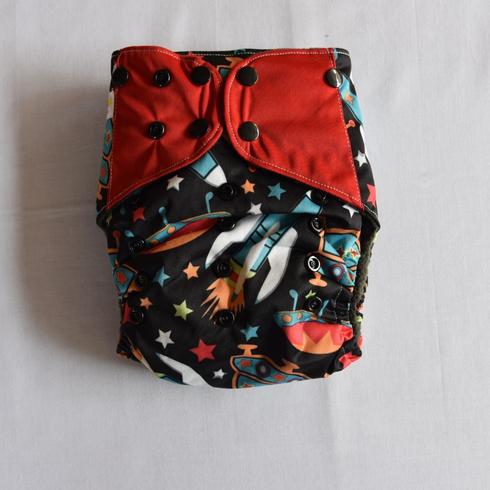
Switch to Cloth
Paper towels and disposable diapers may be convenient but they just end up in landfills after you’ve used them. A disposable diaper can take 500 years to decompose. It’s greener and much cheaper to switch to reusable, washable cloth towels and diapers.

Buy Used
Whether it’s a pre-owned car or a vintage dress, buying used items is usually cheaper than buying new and, if you choose wisely, they can last for many years. Also, it saves one more thing from the landfill, not to mention all the energy and other resources it takes to create new things.
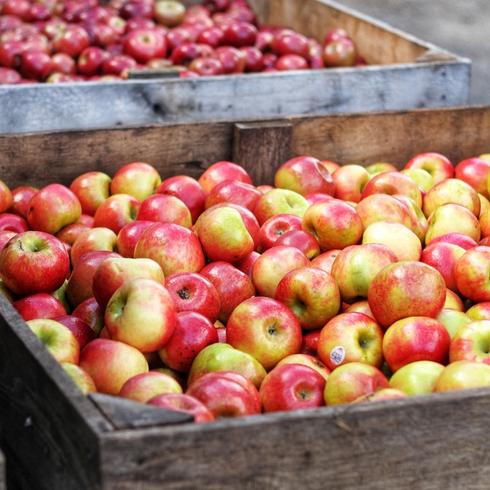
Buy Local
Buying locally produced goods is better for the environment because they don’t have to travel halfway around the world, creating extra carbon emissions. It’s cheaper too because producers don’t have to work huge transport costs and import taxes into the selling price.
Related: Our Top 10 Countertop Compost Bins

Buy Unprocessed Food
Processed food is not only less healthy but is also more expensive. In addition, it is usually wrapped in unnecessary packaging. Buy fresh, unprocessed food from your neighbourhood market and then cook in big batches so you can freeze leftovers for later use.

Grow Your Own
Start a small vegetable garden or plant vegetables in straw bales or planters on the balcony. By growing your own, you can reduce agricultural pollution and you’ll have fresh produce right on your doorstep.
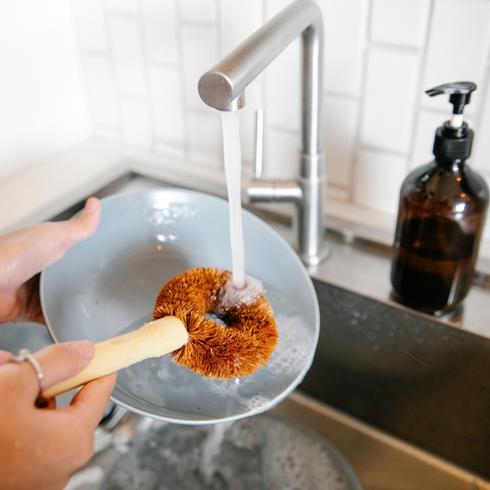
Use a Natural, Multipurpose Detergent
The harsh chemicals in many conventional detergents can wreak havoc on the environment, especially when they seep into lakes and rivers. Opt for a natural and biodegradable detergent instead, such as a multi-purpose variety that effectively cleans clothes, dishes and more. Or, better yet, try these DIY all-natural cleaning products and air fresheners you can make at home.

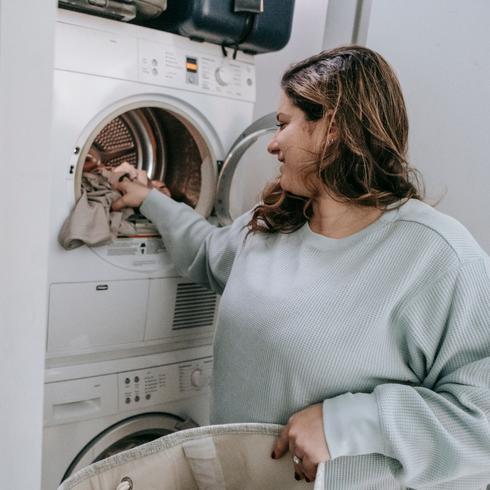
Use Cold Water For Laundry
By doing your laundry in cold water, you save energy. This translates into a lower hydro bill.
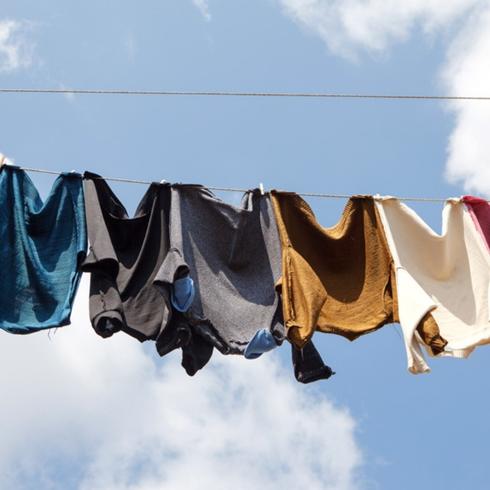
Air-Dry Your Laundry
When the weather’s on your side, skip the dryer and hang your laundry out to dry. This uses only the energy coming from Mother Nature already and the sun is a natural bleaching and sterilizing agent that won’t cost you a cent.
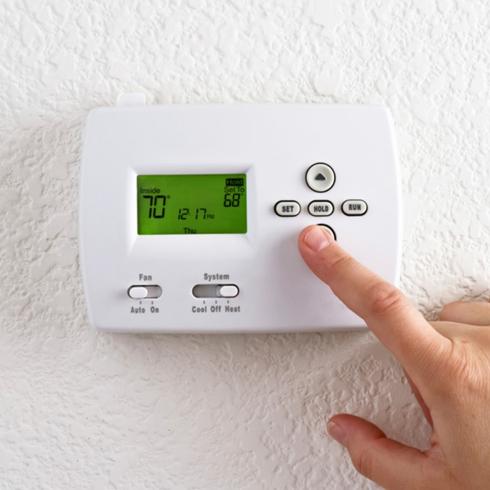
Install a Programmable Thermostat
Hydro One says that for every degree above 20 that you set the thermostat, your heating costs rise about 5%. A programmable thermostat allows you to adjust the temperature according to when you’re going to be home. Saving energy not only saves you money but also reduces your carbon footprint.

Let the Sun Shine In
During the day, open the curtains and blinds to let the sunshine in. This will heat up your home and let in natural light, which reduces the need for energy-guzzling heating systems and lamps. As BC Hydro says, just one south-facing window can illuminate between 20 and 100 times its area.
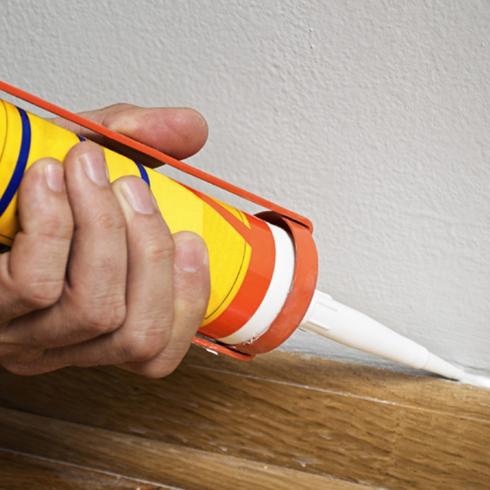
Caulking and Weather Stripping
If you can prevent heat from escaping from your home during cold weather, you’ll use less energy, which reduces your carbon footprint and saves money on your hydro bill. Use caulking and weather stripping to weatherproof your home.

Plant Native Trees
Native trees are adapted to the local environment, normally using less water to grow. They provide shade that will keep your home cool in summer without you having to resort to air-conditioning while helping to absorb harmful greenhouse gases. In addition, they provide a habitat for the local wildlife and, they can also increase your property value.

Drive Less
Your car is a huge contributor to greenhouse gas emissions and also uses non-renewable fossil energy. Use your car less often by carpooling, using public transport or cycling or walking to work. This will save you gas and maintenance money and, if you bike or hike more often, you won’t need that expensive gym membership.

Keep Your Tires Properly Inflated
According to Sustainable Baby Steps, under-inflated tires create drag between the tire and the road surface, decreasing your fuel economy by 10% and reducing the tires’ life by a year. By keeping tires properly inflated, you’ll use less fuel and keep them out of the landfill for longer.

Learn Eco-friendly Driving Habits
MatterofTrust.org says that dangerous driving habits not only increases the risk of accidents but also reduces fuel efficiency. Safer driving habits such as sticking to the speed limit and slowing down as you approach a stop use less fuel, making them cheaper and more eco-friendly too.

Reuseable Water
Those plastic bottles that your drinking water comes in and the Styrofoam or paper cups from your favourite coffee shop are major causes of environmental pollution. A reusable water bottle or travel mug will help reduce pollution and some franchises, such as Tim Hortons, give you a discount if you bring your own container.
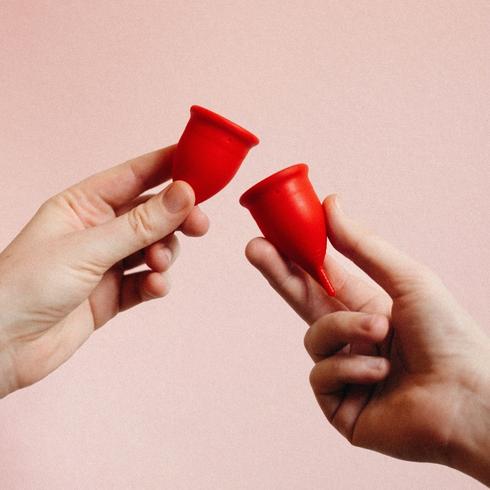
Use a Menstrual Cup
Even though Canada got rid of the so-called ‘tampon tax’ on feminine hygiene products, making them cheaper, the average woman uses 11,000 tampons in her lifetime, according to The Guardian. Tampons and pads take hundreds of years to decompose and leach harmful chemicals into the soil but a reusable menstrual cup can last for several years.

Go on a Spend Fast
If you’re looking for more ways to save, try a spending fast for a month, where you don’t buy anything unless you need it to survive. You’ll save money by not buying unnecessary things and you’ll become more mindful of just how much you consume.
HGTV your inbox.
By clicking "SIGN UP” you agree to receive emails from HGTV and accept Corus' Terms of Use and Corus' Privacy Policy.





